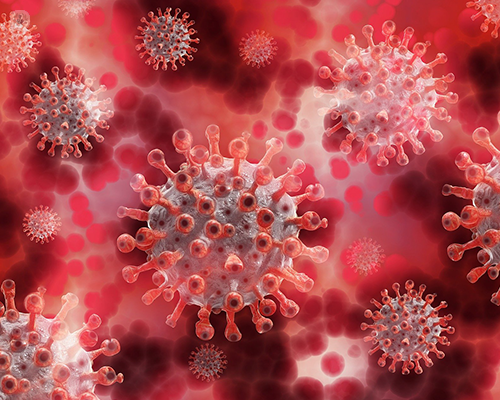How can coronavirus affect the heart?
Written by:Professor Michael Mahmoudi, a leading UK consultant cardiologist, shares his professional expertise with you on how coronavirus can affect the heart.

The novel coronavirus COVID-19 outbreak, which was caused by severe acute respiratory syndrome-coronavirus-2 (SARS-CoV-2), originated from Wuhan, Hubei province in central China in December 2019 and was declared a pandemic by the World Health Organization on March 11th, 2020.
The high replication rate of the virus, especially in the human oral cavity and upper airways, likely enhances its ability for effective person-to-person transmission. This allows shedding of the virus just with normal speaking without the need for coughing or sneezing partially explaining its highly infectious nature. The efficiency of COVID-19 transmission is further enhanced by the ability of the virus to proliferate and shed in asymptomatic individuals including children and young adults.
At the beginning of the pandemic, we were so focused on the effects of coronavirus on the lungs, but what have researchers discovered in relation to the cardiovascular system?
The SARS-COV-2 virus uses a specific receptor called the angiotensin-converting enzyme 2 (ACE-2) receptor to enter cells. These cells are particularly abundant in the human respiratory tract. The ACE-2 receptor plays a critical role in the signalling pathway involved in the regulation of vascular function, including the regulation of blood pressure and blood volume.
Who is most at risk of cardiovascular-related damage?
Data from Wuhan early in the course of the pandemic suggested some patients with COVID-19 exhibit severe cardiovascular damage and those with underlying cardiovascular disease appeared to have an increased risk of death. As the pandemic has progressed, it has now become very clear that advanced age, certain ethnicities, pre-existing cardiovascular disease, hypertension, diabetes mellitus, chronic lung disease, cancer, and obesity are associated with an increased propensity for the infection as well as worse outcomes.
What type of heart problems might occur?
Patients with COVID-19 infection can develop cardiovascular complications including heart failure, inflammation of the heart muscle (myocarditis), inflammation of the lining of the heart (pericarditis), heart attack, and rhythm disturbances of the heart (arrhythmia).
Up to 30% of patients with COVID-19 infection will display the release of a protein called troponin due to heart muscle injury. The presence of troponin release, particularly if it continues to rise, may be associated with a 5x fold increased risk of requiring mechanical ventilation, increased risk of life-threatening rhythm disturbances of the heart, and a 5x fold increased risk of death. It is currently unclear whether the heart damage that we observe in COVID-19 infected patients is due to direct viral injury or secondary to the immunological reaction that the virus generates, which in turn leads to heart damage.
Although several risk factors have been identified for acquiring COVID-19 infection, it is extremely important to understand that many patients that have acquired the infection and have tragically passed away as a consequence of the infection did not have the risk factors that have been mentioned here . It is important to continue with your medication if you become concerned that you have COVID-19 infection and seek medical help.
Professor Mahmoudi has over 20 years of experience in diagnosing and managing numerous cardiology-related conditions. Visit his profile and discover how he can help you.


